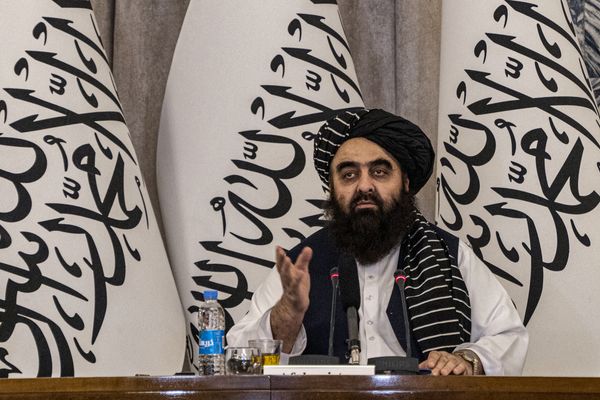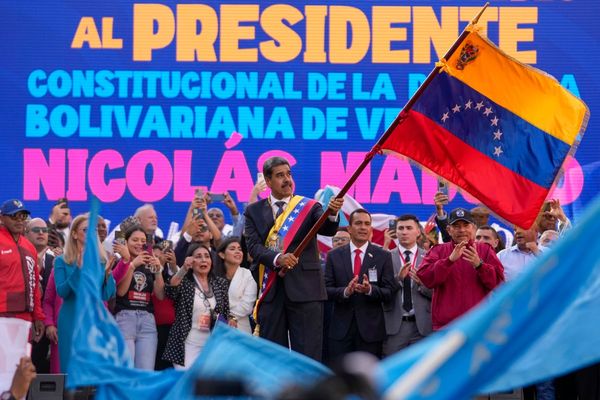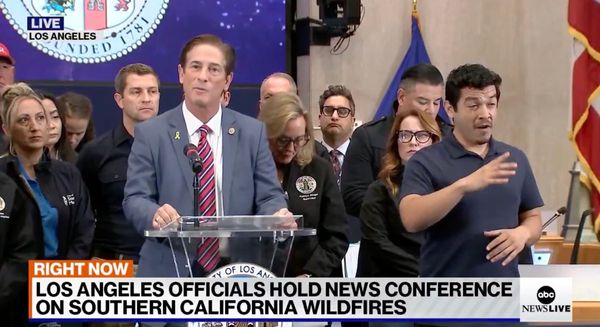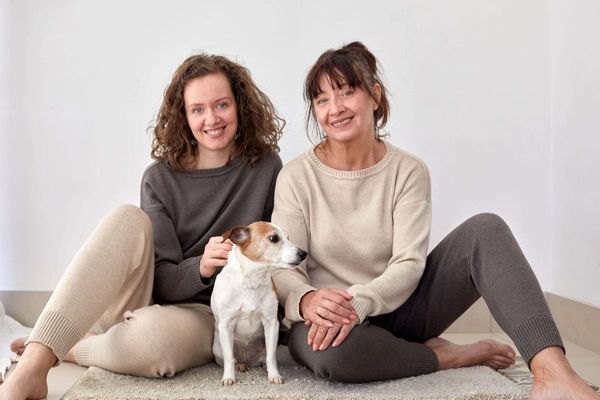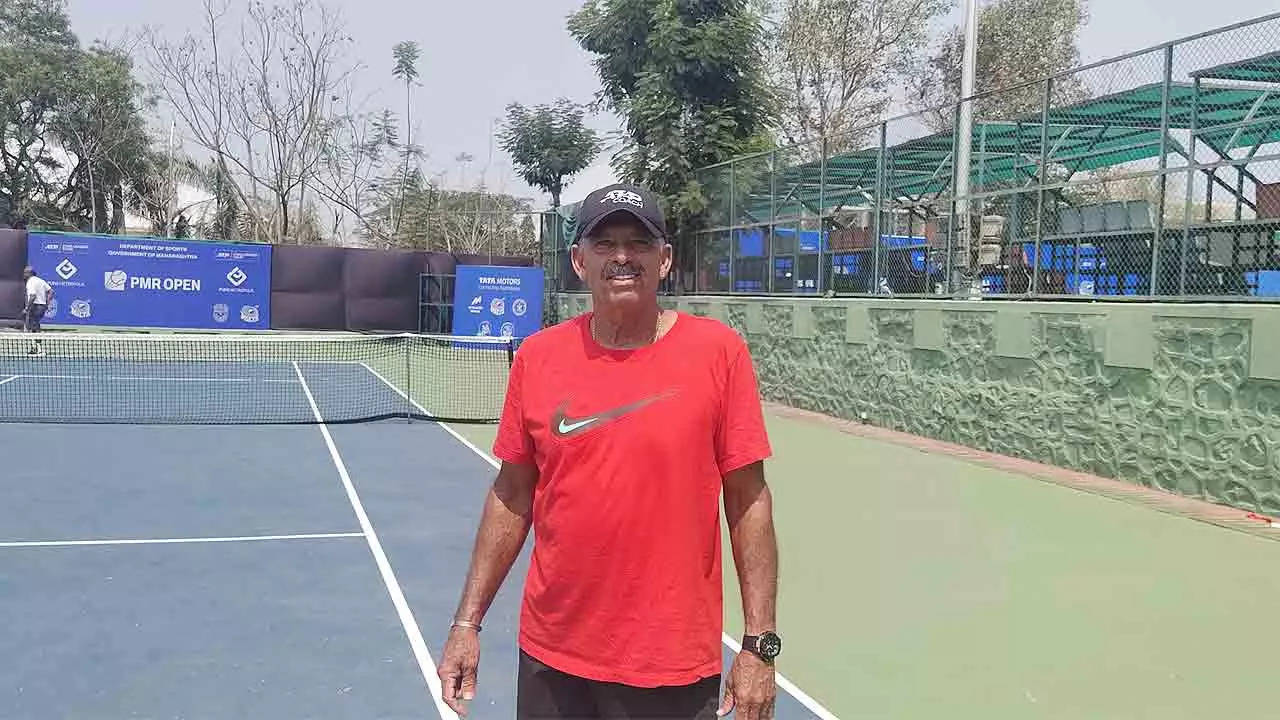
PUNE: John Farrington says Indians have the talent but bringing back the glorious days of Leander Paes and Mahesh Bhupathi scaling the summit in world tennis was "not gonna happen by luck".
Farrington, a former Bahamas player and Davis Cup captain, knows a thing or two about what it takes to reach the top.
He was ranked 894 as a player and earned a career prize money of $520. But it is as a coach he made his name, helping four different doubles combinations to win Grand Slams and rise to World No. 1 ranking.
Since he started coaching in 1984, Farrington guided his compatriots Mark Knowles and Daniel Nestor from 1998 to 2001. The duo reached the top rank and won the Australian Open in 2002.
He tasted more success with the Nestor-Nenad Zimonjic pair which won three majors — Wimbledon, 2008 & 2010, and French Open, 2010 —and 20 ATP Tour titles, including two year-end Finals and a bunch of Masters.
Later, he guided Oliver Marach and Mate Pavic to scale the ranking summit and lift the Australian Open trophy in 2018.
"I've been fortunate that I've worked with teams that were ranked No. 1, so I know what it takes to get there. And for sure India has the talent in order to achieve that goal, if they want to put in the work. It comes back to work. This is not gonna happen by luck," said Farrington on the sidelines of the $130,000 PMR Open ATP Challenger men's tennis event in Pune.
Farrington is set to head the "Doubles Dream of India" project that — overseen by Rohan Bopanna and funded by KPIT through the Pune Metropolitan District Tennis Association as a CSR programme — supports the country's top-200 ATP ranked doubles players with the goal of winning an Olympic medal.
The Nassau native, who also coached Sania Mirza for two years in 2005-06, said he would not have let go the chance to help the Indian players.
"Especially knowing the talent that India provides. It would be a shame for it is not to be explored," he said, "because it's not just about this generation, it's the generations that (are to) come.
"You have Rohan, he has had great results but eventually at some point in time he is not going to play. So who do we really have coming up? So I think this program can be put together as an opportunity for these players or for the kids in the future. I think it's phenomenal."
Recalling his days with Knowles and Nestor and their matches with the 'Indian Express', Farrington said it was "too bad that after Mahesh and Leander, tennis didn't really grow" in India and that it was due to absence of "direction" for the next generation.
"That would have been prime opportunity, I think, for tennis to continue, knowing what they achieved," he said.
"You always want to try and get back. How can I continue to grow the sport? I was successful, (but) I didn't get there by myself. Be it Knowles, Nestor, Leander or Mahesh, they didn't get there by themselves.
"There was support from whoever, you know, family, friends, coach, something, someone helped you and direct it.
"Today, the world has changed, the kids need direction. I don't think they did enough, get enough help or enough support. It is not a cheap sport. And to get the correct coaching and help, it's not easy."
Farrington rated Sania's achievements more than that of any other Indian's.
"Good memories. Sania put in the hard work and she listened," he recalled.
"She had the type of game that helped you (win matches), she had weapons. Career-high ranking of 30, then became No. 1 in doubles.
"In my opinion, the most successful tennis career. Has anyone done it in India, man or woman, singles and doubles?
"Leander has been there, Mahesh has been there. But she did it singles, top-30. It's pretty impressive."
Farrington has already begun working with Yuki Bhambri and Saketh Myneni, starting with two Tour events in the US followed by the ATP 500 event in Dubai, where the duo suffered a heart-breaking defeat in the final qualifying round but entered the main draw as lucky losers and went on to shock the top seeds in the opener.
"Yuki and Saketh were great to work with. They were listening, willing to listen, put in the work," he said.
"It's not easy for them because of the type of work we're doing and the drills we're doing. And it's always difficult to concede some changes that we needed to make.
"So fortunately, I got to spend three and a half weeks, and now we're starting to get it. We've had a couple of close matches that they should have won. But in the future, they will be winning those matches.
"They had a great win the other night in Dubai. So it's starting to show a little."
Both Bhambri and Myneni, considered the most talented players, switched to doubles after their careers were interrupted by frequent injuries.
What's their true potential? How far they can go from here on?
"We'll see how high can they go, what can they achieve. The sky's the limit," he said. "I mean, they can get the No. 1, they can be top-10, if they continue to work and make the sacrifices that are required in order to achieve that goal."
Of the rest of the players in the doubles project, Farrington is yet to meet Jeevan Nedunchezhiyan and Sriram Balaji, who are playing the Tour event in Santiago.
Given the difference in players' rankings, Farrington will be dividing his time between those who enter the Tour events and those in the Challengers.
He was clear that it was "not gonna be a free ride", either for him or the players.
"I will be signing a contract, and players will have to sign a contract too," he said.
"If you are not going to work, not going to put in the effort, we will see for maybe three months …
"There'd be no reason why you wouldn't want to try and benefit and do whatever it takes to be successful, given this opportunity.
"It's not going to be a free ride for me, they understand that. And they understand it's going to be a lot of hard work. But we will have success too."
